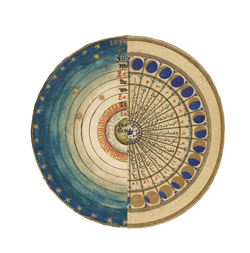The introduction of modern technology and sciences to Islamic societies brought about some intellectual problems. The Islamicate world had a long history of contribution in different sciences and in the growth of human knowledge. Alongside the sciences, philosophical and theological ideas were developed which gradually formed a part of the belief system for some religious scholars. Facing modern technology and science, those scholars who in recent centuries didn't have a share in producing knowledge, reacted in different ways: 1) denying modern sciences in favour of traditional versions; 2) claiming the same status for traditional sciences as the modern ones; 3) accepting modern sciences. The first option didn't have repercussions regarding traditional theologico-philosophical systems, but practical success of modern sciences would increasingly make it impossible to hold. The second option too wouldn't cause philosophical or theological problems, but soon its adherents had to abandon it for either option 1 or 3, since the differences between the old and new sciences would in time become obvious. Option 3, which has been the prevailing approach, entails cutting old natural theories from theologico-philosophical systems. The result is retaining theology and metaphysics while ignoring old sciences intertwined in them. But is this approach as robust as its advocates believe?
In this paper I will assess the three mentioned approaches by analysing examples for each, criticising especially the third. The case study will be Iran as an Islamic society which continues to study traditional theology and philosophy to the present day. However, the focus is not on the history of ideas in Iran or any other specific Islamic land, but on some universal patterns regarding possible attitudes toward traditional philosophy and theology. The main question to be studied is how neglecting the history of science leads to misinterpretations of the past philosophical and theological thought. In some cases, a previous scientific theory might become sanctified and petrified as a part of faith. In other cases, an idea connected to the history of empirical sciences might turn into a discursive, non-empirical formula. To demonstrate these cases, I will examine, inter alia, the theory of four natures among Mutakallims, and the relation between astronomy and philosophy among Peripatetics, especially Ṭūsī. These cases, which primarily belong to the history of science, would help to clarify not only the characteristics of past philosophy and theology and to avoid their ideologization, but also to gain a deeper understanding of the relation of philosophy and theology to science.
- Poster

 PDF version
PDF version

